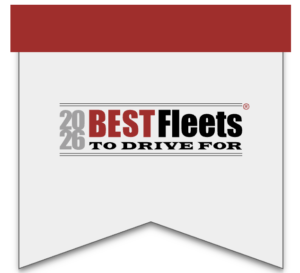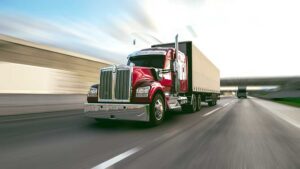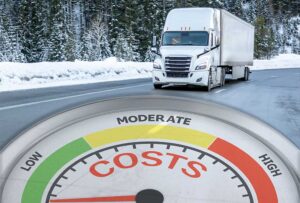Is this a good time to buy a truck and start my own business?
Lots of truck drivers dream of buying a truck and starting their own trucking company. After all, being an owner-operator has several advantages.
Truck owners don’t have to worry about complying with carrier rules about equipment. Buying your own provides the ability to select options that many carriers might eschew, like more horsepower, more chrome, extra running lights and other customizations.
Unforced dispatch is another perk. The owner can select loads that are more profitable or that go to more desirable destinations.
For decades, used trucks have provided a gateway to truck ownership for drivers who couldn’t afford brand-new. They can also provide an escape from new truck expense, newer, unproven technology — and most recently, tariffs.
When is the best time to buy a truck?
The most-asked question is, “When is the right time to purchase a truck?”
In 2020, as freight rates shot skyward, drivers flocked to dealers and truck-trading publications to find equipment. Record numbers of truck owners registered for their own authority and got into the trucking business while the cash was flowing. Existing carriers with large fleets saw entrepreneurial driver-employees strike out on their own.
Then, just two short years later, records were once again set — this time for the number of carriers closing their doors. Suddenly, used trucks were plentiful and less expensive, and drivers weren’t hard to find as they flocked to the security of regular employment.
Freight rates are rising again, but this time the upward movement is excruciatingly slow. Fuel prices have come down — but so have fuel surcharges. Everything else has increased in price, driving the cost of operation ever higher. Interest rates for financing remain high.
Now, used truck prices are climbing too.
According to data received from ACT Research, the average retail price of a used Class 8 trucks in April rose by 7% month over month from March and were up 4% year over year from 2024.
The good news is that there are more trucks available. Used truck inventory stands at 23% higher than April of last year — and the average truck has fewer miles on it, too.
Pressure on the used truck market is expected to increase as buyers choose to buy pre-owned tractors in lieu of paying higher prices for new ones.
The Trump administration has weakened some of the Environmental Protection Agency’s mandates for heavy-duty trucks set to take effect with 2027 model-year vehicles, adding $25,000 to $30,000 to the cost of each truck. However, some carriers are still latching onto 2025 and 2026 models, while others are turning to the used-truck market.
Tariffs, both threatened and imposed by the Trump administration, are causing further market uncertainty.
Make sure you have a plan before jumping into the buying process.
With prices rising, it may be tempting to buy a used truck sooner rather than later. However, if you’re planning on becoming a truck owner it’s important to start out with a plan for your business.
Types of owner-operators
If you plan to lease your equipment to an existing carrier, make sure that carrier can provide the revenue you’ll need to be profitable. If you plan to get your own authority and become truly independent, you’ll need to know where your freight will come from.
The easiest option is to lease your truck to a carrier as an independent contractor (IC). Under this setup, the carrier will provide you with loads and you’ll be compensated either by the mile or by a percentage of load revenue the carrier collects. You’ll have fewer administrative duties, but your earnings will be less, too. Still, some truck owners find the practice lucrative, especially if the carrier offers fuel discounts and assistance with parts and maintenance.
Some owner-operators do well hauling for the spot market, meaning they find cargo to transport through load boards such as DAT, Truckstop or others. If you specialize in agricultural or other bulk freight, BulkLoads operates a specialized load board for the segment.
Some owner-operators establish relationships with a few brokers who provide their loads. Some sell their services directly to customers for at least some of their loads. Before you invest in a new truck, know where your loads will come from.
Understand how the freight market works.
Knowledge of how the market works is valuable, and it’s worth your time to learn all you can.
For example, Florida is well known as a “consumer” state. With a growing population, the state needs all sorts of products — and freight rates to destinations within the state are usually good. Unfortunately, the state doesn’t produce much, so loads coming out are hard to find and tend not to pay well. The same scenario is true in different regions or certain cities.
Study load boards, and use free tutorials offered by DAT and Truckstop to learn all you can.
Know what’s involved in operating a business.
Another issue is to make sure you understand the tasks associated with running your business. You may be a great trucker — but that doesn’t necessarily mean you’re a great business manager. The two roles require vastly different skillsets.
Take a look at the structure of a large carrier and its different departments. You’ll find dispatch and customer service, safety and compliance, accounts payable and accounts receivable, maintenance and many other departments. As owner of a trucking company — regardless of whether you have one truck or 20 — you’ll be responsible for the work of all of these areas.
Some truck owners make agreements with others to handle many of these tasks, such as collecting payment or keeping permits current. Some perform most of their own maintenance, and some may use a local shop.
Drug & Alcohol Clearinghouse
Maintaining records in the Federal Motor Carrier Safety Administration’s Drug and Alcohol Clearinghouse is another important consideration. If you aren’t leased to a carrier who will do it for you, you’ll need to join a drug and alcohol consortium to stay up to date and legal on testing requirements.
Factoring
Factoring is a service that can help keep cash flowing through your business. A factor handles the billing of your customers and can often pay you before the money is actually collected. Of course, factors also keep a portion of the total amount collected as a fee. If the customer doesn’t pay, the factor may or may not demand that you pay them back for any “advances,” depending on the terms of your agreement.
Fuel purchases
How you’ll purchase fuel is another consideration.
Cash works nearly everywhere — but carrying large amounts of money to fund fuel purchases is risky. Credit and debit cards are convenient, but they usually carry extra fees that will raise the total cost.
Many service providers such as factors, some brokers and some trucking organizations offer fuel cards that can provide substantial discounts. Some link discounts on tires, repairs and other services.
You’ll need cash, too. You’ll burn a lot of fuel before revenue checks start coming in.
Remember, buying a truck means buying a business. Make it pay.
Cliff Abbott is an experienced commercial vehicle driver and owner-operator who still holds a CDL in his home state of Alabama. In nearly 40 years in trucking, he’s been an instructor and trainer and has managed safety and recruiting operations for several carriers. Having never lost his love of the road, Cliff has written a book and hundreds of songs and has been writing for The Trucker for more than a decade.











